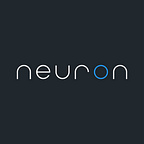Better Practices for Humans and Products
Charlotte Chang, Director of Instructional Design, shares strategies for modern product roadmapping during uncertain times
Neuron’s March Beer and UX Meetup
This month’s Beer and UX session focused on the importance of bringing human experience to bear on our work as designers. We should not forswear our technical expertise, of course, but rather use our emotion and compassion to give it deeper meaning.
Charlotte Chang, Director of Instructional Design at Industrial Design, Inc., brought nearly two decades of consulting experience to her remarks on a holistic philosophy of creation. By better understanding yourself, your clients, and the intended end user, she said, we will necessarily create better experiences.
In this installment, we also spoke about speaking. When are you most effective at it? In your home, your relationships, your life? More than likely, it is when you tell the truth.
How do you tell the truth?
Don’t varnish. Don’t sell. Don’t even think, if that’s possible. (Yes, that is hard.) Just say what is on your mind.
Tell what you know, as plainly and honestly as possible. This quality and depth of communication will help you to connect with your colleagues, supervisors, and customers. You’ll better understand their needs, and they yours.
Charlotte emphasized three elements crucial to innovation.
- Feasibility: Build on your core operational strengths–consider whether your innovation will strengthen your business.
- Viability: A profitable solution with a sustainable business model–consider whether your innovation will benefit long-term growth.
- Desirability: A desirable solution that your client needs–consider whether your innovation solves the correct client problems.
This month’s meetup was also about the tangential process of messaging. A useful exercise is unfolding on National Public Radio as we write: the Supreme Court confirmation hearing for Ketanji Brown Jackson. It is inspiring.
Judge Jackson is speaking, clearly and concisely, about her experience as a public defender, and why it’s important to preserve the rights of the accused. It is not easy for a nominee to maintain her composure with members of Congress calling into question her knowledge and interpretation of the Constitution. It helps that she has precedent on her side.
So it is fair to expect distraction and disinformation just as you are doing your best to clarify. Be prepared. Make notes, anticipate and address questions, and put your best foot forward.
Charlotte’s list of ingredients for innovation success are on display in Washington. Feasibility, viability, and desirability are critical to any new product or service that a company is bringing to market. The intersection of these three elements is a sweet spot. As it happens, Judge Jackson is an example that proves the rule. She began her day by reiterating her belief in the principle of law, which exists to protect the rights of both plaintiffs and defendants. Unlike the grandstanding of elected officials seeking to score cheap political points, Judge Jackson exhibits the quiet confidence engendered by her experience and convictions, while acknowledging that her legal education is a work in progress.
For all practical purposes, Judge Jackson is the new product coming to market–in this case, the highest court in the land. By answering questions deliberately and conscientiously even in the face of hostile interlocutors, she is allowing her would-be colleagues, customers, and end users to observe the strength of her beliefs. She is manifesting the human qualities that will guide her considerations as a Supreme Court justice.
Tara Swanson, Charlotte’s co-presenter and colleague at Industrial Logic, Inc., described the importance of flexibility and balance to the creative process. It is critical, she said, to take periodic breaks to maintain perspective and quality of life, and to meet one’s goals.
Charlotte shared “Created for Joy,” written by the Sufi poet Hafiz in the 1300s:
I sometimes forget
that I was created for Joy.My mind is too busy.
My Heart is too heavy
for me to remember
that I have been
called to dance
the Sacred dance of life.I was created to smile
To Love
To be lifted up
And to lift others up.O Sacred One
Untangle my feet
from all that ensnares.Free my soul.
That we might
Dance
and that our dancing
might be contagious.
The poem serves as inspiration and a welcome reminder that creativity is a human imperative, as fundamental as drawing breath.
Charlotte and Tara shared two books that can be used as resources for design professionals. Guts and Grace, by LeeAnn Mallorie, is subtitled “A Woman’s Guide to Full-Bodied Leadership.” It provides a blueprint for enacting the trade-offs necessary to achieve success, balance, and joy. Pedagogy for the Oppressed, by Brazilian educator Paulo Friere, is a handbook to understanding the concept of humanization. Its messages of empowerment and self-improvement are as vital today as when it was first published in 1968.
This month’s meetup covered a wide range of topics, but the overarching theme is that successful design in the realm of digital product design requires us to remember that people are as critical as the process. With that in mind, clients and their unique needs will remain at the forefront of creativity.
See you next time!
P.S. This Beer and UX Meetup event was interactive, with lots of time spent collaborating in Mural, so there is no video for this one. However, you can watch full presentations and discussions from insightful past meetups on our YouTube channel.
Beer and UX is a Meetup group with more than 2,700 members. Hosted by Neuron, this community of design enthusiasts meets regularly to hear from industry professionals, debate, and collaborate.
